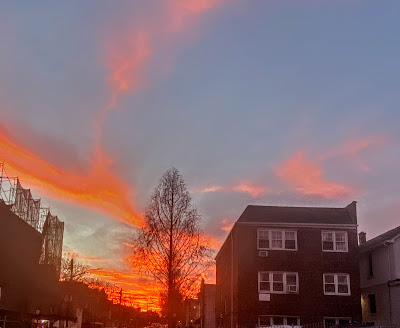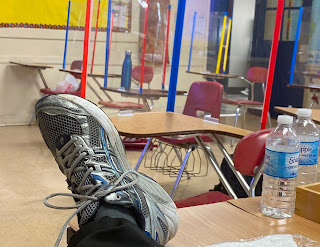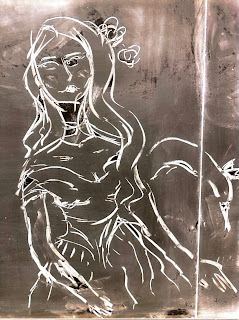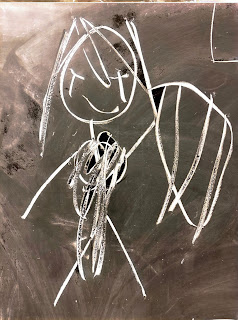In this post, I reflect on the importance of silence and reading in forming ideas. Reading allows for a more immersive and contemplative experience, as opposed to passively consuming external stimuli like TikTok or television. I also speak about the value of storytelling and being called a poet by a child named Evan. I conclude by recounting a story about finding and decorating a Christmas tree in the forest.
 |
| On a quiet night in early winter, even in New York, there is an inspiration to read, and think, and look out my window. |
No Books at the Dinner Table
The one freedom left to me is silence. In silence, there is the freedom to read, to think. Reading is a form of silence. A silence filled with words. In reading, I choose words like a savory meal; the brain queues words into the mind in waking life, but in reading life, I can choose carefully. Reading a book is sweet indeed. On a train, at the dinner table. Prone on my back. Against a tree. As a kid, I could not read at the dinner table. ”Bad manners,” my father would tell me. ”Put the book down, Greig. It's dinner. Get your head out of that book." Zero in on me looking forlorn. And include a wide shot of how awkward the family dinner became.
I don't fault my father. He was not a reader. But he enjoyed good conversation and didn't like being alone — even at the dinner table. As an adult, I have not turned into my father. But not because I am a reader and he is not — but I let children read whenever they want. Children should never be allowed NOT to read.
The Freedom of Reading
But back to my thesis. The freedom to form ideas is buttressed by silence. Is this the contemplative life? Silence is active in a book full of ideas. The ideas in a book are like taking one bite out of a delicious meal and savoring each morsel. Ideas pumped into the brain from external sources like TikTok, YouTube, random channel surfing on the television — do not have the freedom of “one bite at a time.” It's passive consumption. However, podcasts and audiobooks — I don't argue these are as passive because I find audio more immersive than visual. Don't get me wrong, though. I love the visual. And I love TikTok. I am more or less arguing for reading (and not suggesting one throw the baby out with the bathwater).
Why read? I read for epiphanies. Not for epiphanies I have had but for epiphanies, I have not had.
I am silent, so I can learn of an epiphany in a poem.
When I Read a Good Story
When a story is told, your eyes grow bigger, and you rest awhile, knowing something good is about to come, and you know the pleasant color of a story put together as I go along is sufficient.
I am a storyteller. I tell stories. And I was confirmed in that role today. He called me a poet. His name was Evan — about nine or so. He called me a poet. I pay attention when kids say something important. Which is most of the time.
I told a story about finding a Christmas tree in the forest. We cut it down, a nice one — it was a sufficient size — and we drug it back home to decorate it. Sort of like that scene in Christmas Vacation — the one with Chevy Chase as the avuncular but hapless father -- where he takes his family into the woods to cut down the tree. Something like that. Now that's family.








